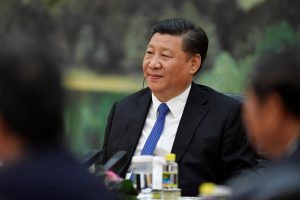
China must strengthen its grip on the internet to ensure broader social and economic goals are met, state news agency Xinhua reported on Saturday citing comments from President Xi Jinping, underlining a hardening attitude towards online content.
Under Xi’s rule China has increasingly tightened its grip on the internet, concerned about losing influence and control over a younger generation who are driving a diverse and vibrant online culture from livestreaming to blogs.
“Without web security there’s no national security, there’s no economic and social stability, and it’s difficult to ensure the interests of the broader masses,” Xinhua cited Xi as saying.
China is also looking to take a leading role globally in internet regulation and technology more broadly, which has come into sharp focus amid a trade standoff with the United States and an arms race over technology.
The United States banned sales of parts and software to Chinese telecoms equipment maker ZTE earlier this week, which the Chinese firm said on Friday threatened its survival. ZTE uses U.S. chips in many of its smartphones.
Luo Wen, China’s deputy industry minister, said while China had made progress in advance manufacturing in areas like electric vehicles and aviation, it was still facing challenges due to a lack of top talent and global scale, Xinhua said.
“Our advanced manufacturing development faces the risk of being boxed in at the low-end,” Xinhua reported, citing Luo.





